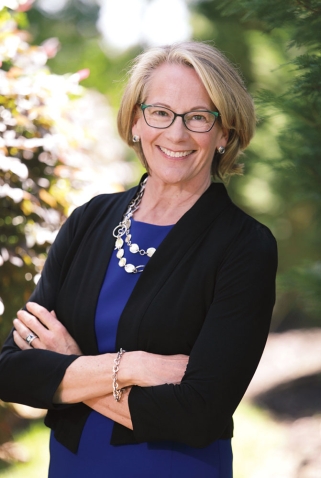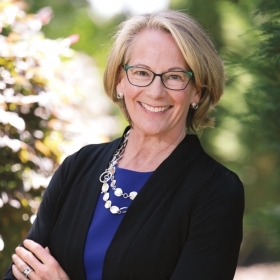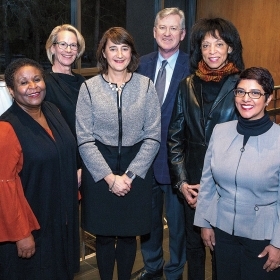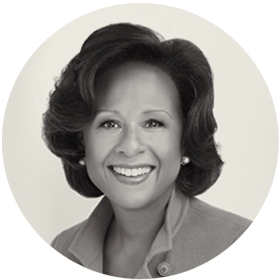Recently, someone asked me, “Where is Wellesley in your story?” I stopped for a moment before I answered, then replied, “Wellesley is everywhere in my story.”
When interviewed for this magazine last year, I spoke about visiting the campus for the first time with my father in January 1980. I have vivid memories of that trip and equally vivid memories of the day my parents dropped me off at Wellesley. There was a split second when my father released me from a hug. Our eyes met and I remember thinking, “I’ll never be the same.” Perhaps he thought the same thing.
Little did I know what an integral part Wellesley would play in my story. It was at Wellesley that I developed and honed my leadership style; it was at Wellesley that my suspicion that women could do anything was confirmed; it was at Wellesley that I made lifelong friendships that would see me through the joyful and devastating moments in life. My intellectual curiosity was fed. Personal challenges presented themselves as I learned to live as part of a diverse community of women. We challenged ourselves and one another—to think, to question, to begin to figure out what we valued in ourselves, one another, and the world around us. We began to understand what it meant to “make a difference in the world.”
Looking back now, I realize that the Wellesley community I became a part of during those four years on campus has stayed with me and nourished me, and that I inherently knew I would do what I could to nourish it, too, long after those four years were over. I wanted to do what I could to nourish Wellesley. I chose to. Why? To be sure, Wellesley would always be there for me (selfishly) and for generations to come (unselfishly). Did I expect Wellesley to stay the same or to change? Did I expect to stay the same myself or continue to change as I had during my four years on campus surrounded by those smart, capable, burgeoning leaders?
All of us have changed over time, but there are elements that are the same. My father would probably tell you that I am the same person he hugged goodbye in 1980, but he’d also observe the subtle and substantial changes in me that have taken place over the 40-plus years since then.
One thing that hasn’t changed since my years on campus is my dedication to Wellesley, but there have been times when it wobbled. I’d hear myself saying, “But it’s always been done that way! No afternoon tea on Wednesday? There aren’t bells anymore? Now you’re telling me clubs shouldn’t pay dues?”
But I’d regroup, recognizing that change is part of every aspect of life—Wellesley and otherwise. Maybe it was during one of those Wellesley wobbles that I promised myself I would not be someone who said, “Because we’ve always done it that way.”
Wellesley is changing. Of course it is. The work of the WCAA is changing, too. Of course it is. Times change, and change takes time. Some changes will take place and we’ll only notice decades later what’s different. We’ll talk to a group of current students and bond over having the same class color, but be surprised by their description of a multidisciplinary course on the environment that we’d never have seen in our own course catalog (which would have been available in print only, not online!).
My father passed away in early February, and, perhaps appropriately, my mother called to tell me when I was on a Wellesley College Board of Trustees Zoom meeting. “Things will never be the same,” I thought in that instant. Wellesley, once again, had asserted herself into my story.
Where is Wellesley in my story? Everywhere.
Where is Wellesley in your story? Where do you want it to be?








We ask that those who engage in Wellesley magazine's online community act with honesty, integrity, and respect. (Remember the honor code, alums?) We reserve the right to remove comments by impersonators or comments that are not civil and relevant to the subject at hand. By posting here, you are permitting Wellesley magazine to edit and republish your comment in all media. Please remember that all posts are public.